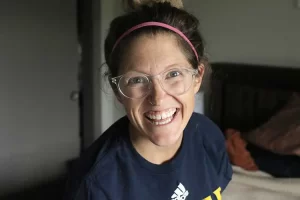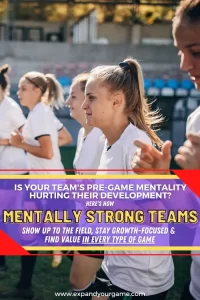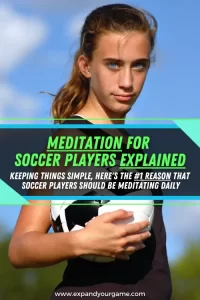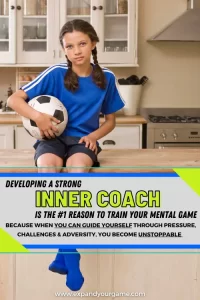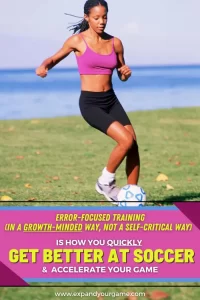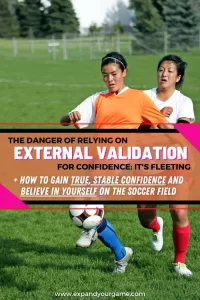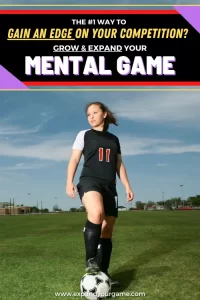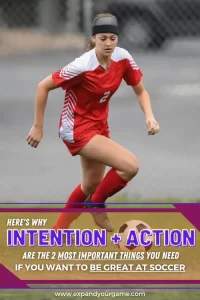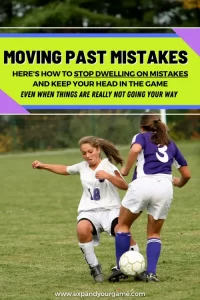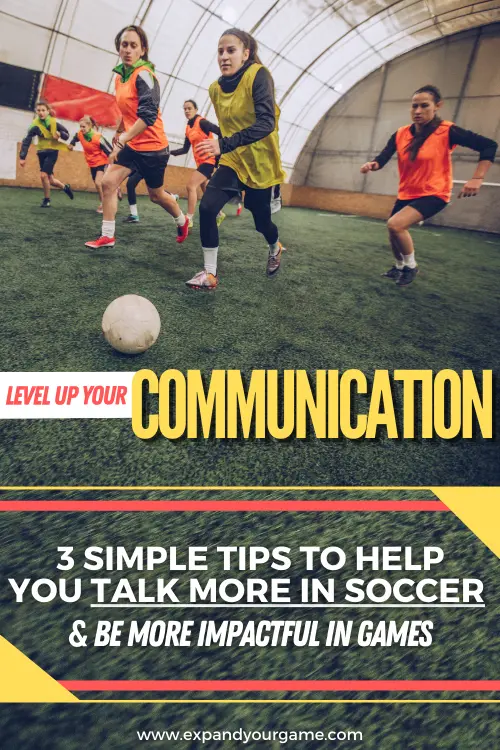
This Post Contains:
How good communication impacts the game
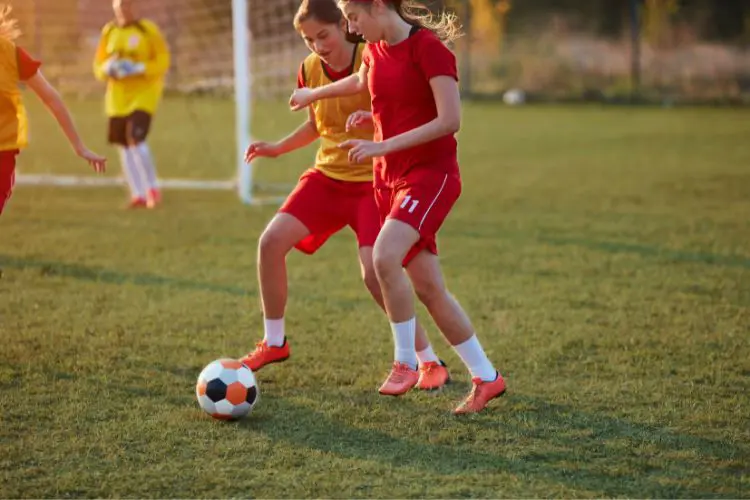
soccer Is 90% Mental
So what are you doing to train that part of your game?
Introducing the Mindset Mastery Academy
A 10-week 1:1 mental skills mentorship experience for female soccer players
But I'm afraid I'll say the wrong thing!
-
they don’t know what to say
-
they are worried they might say the wrong thing
-
they believe no communication is better than bad communication
-
they lack confidence and don’t trust in their ability to communicate well
-
they think that what they have to say is not worthwhile
-
they are afraid they will be held responsible if they give bad information
-
they just don’t know how to talk more in soccer
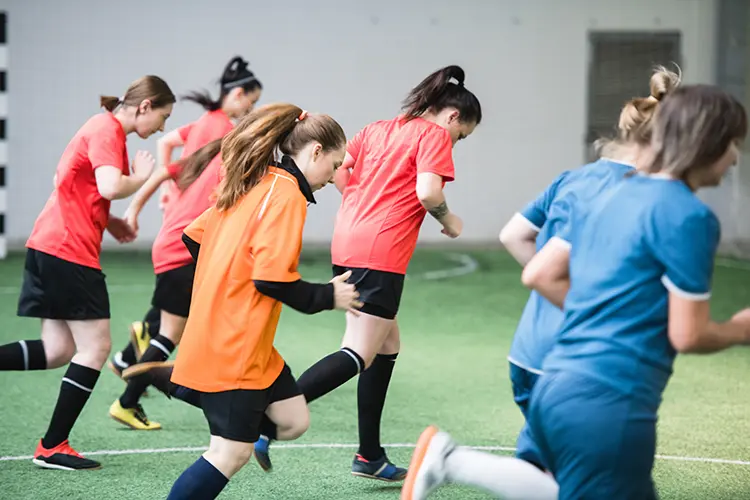
Using negative self-talk and placing unrealistic demands & expectations on yourself at a soccer game is a quick route to never-ending feelings of failure and inadequacy, not to mention low self-confidence.
Demanding change doesn't work
Grow your confidence through preparedness.
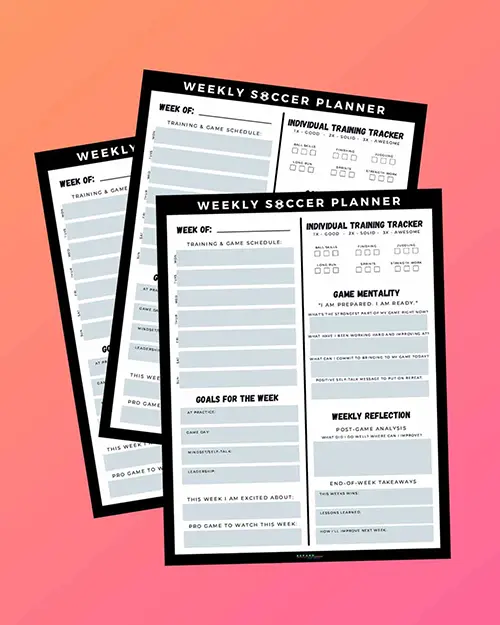
Subscribe to our email list to
Get your FREE Weekly Soccer Planner!
We respect your privacy. Unsubscribe anytime.
Situational awareness is key
Qualities of players with good situational awareness
- Players with strong situational awareness are often very impactful in game play; they are the difference-makers on the team
- They play proactively, create chances and make critical defensive interventions
- They make early decisions and they have great anticipation and pattern recognition
- They keep their head on a swivel and are constantly checking their surroundings, absorbing information about potential hazards and opportunities; they adjust well to unexpected changes in the game environment
- They are able to selectively focus and hone in on what is happening around them, they aren’t easily distracted
- They are often selfless players who read the situation and act accordingly based on what is best for the ball and the team in that moment
- Players with strong situational awareness are good at calculated risk assessment, meaning they know when to take a chance and when to be conservative
- They are effective communicators, guiding the ball from player to player and directing traffic on the field
3 simple steps to help you talk more in soccer
Step 1) Collect INFORMATION constantly
scan the field; keep your head on a swivel; check your shoulder every few steps
- Where is the space to exploit?
- What is going on in each channel?
- Where are your teammates?
- Where are the opponents?
- Is everyone marked? Are our defensive layers connected, ready to go?
- Are we positioned well for transition?
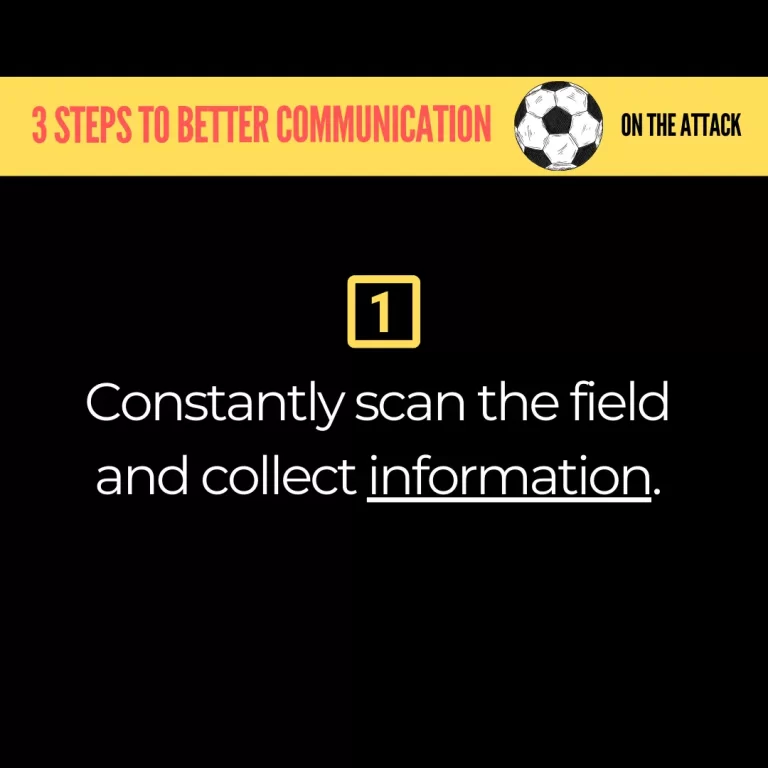
Step 2) Feed the INFORMATION to your teammates
talk about what you see; give details about what is happening
- Man on! (when an opponent is approaching fast)
- You’ve got time! (when they don’t need to rush)
- You’ve got space! (when they can carry the ball)
- You’ve got drop! (when they’ve got support behind)
- Step! (when they need to be first defender and pressure the ball)
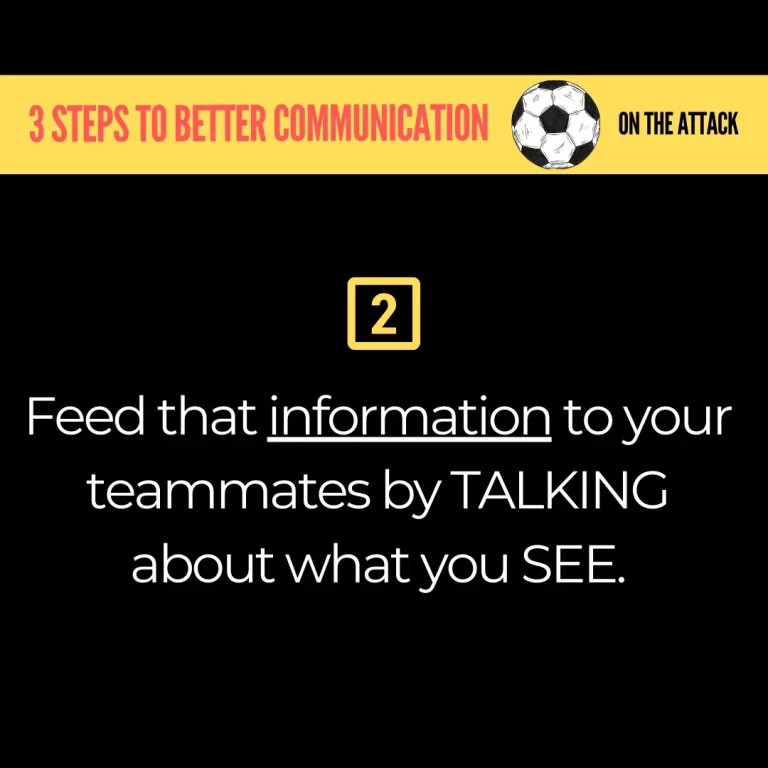
Step 3) Use the INFORMATION to impact
use it to anticipate, create & organize; Make a difference
- find & create opportunities!
- anticipate and make critical, defensive interventions!
- be creative!
- adjust on the fly!
- move proactively into pockets and holes!
- think two steps ahead!
- move the ball quickly after transition before the opponent can set up!
- unbalance the backline!
- help organize the players around you!
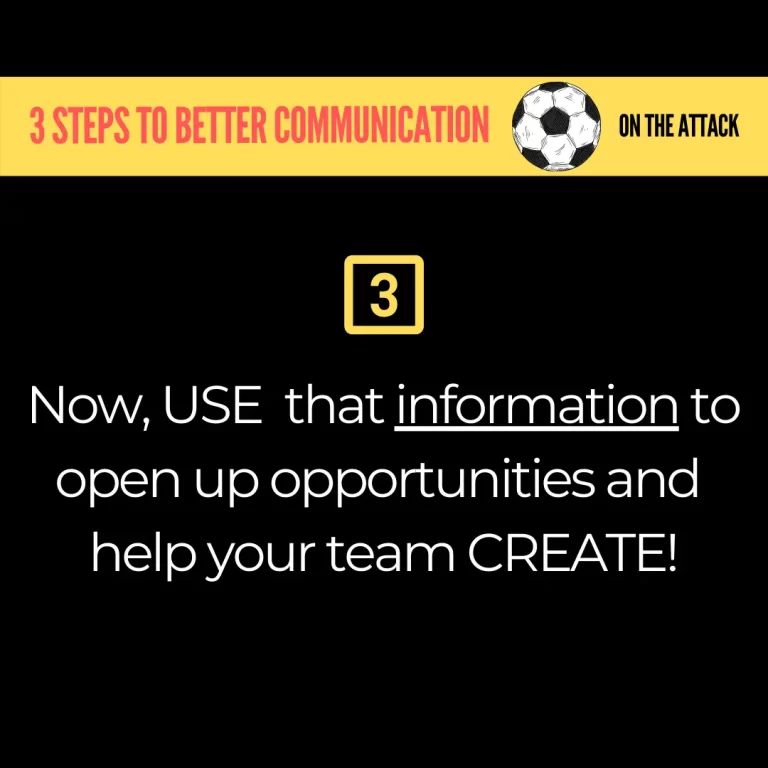
Focus on gathering information & the rest will come
The same idea can be applied to the rest of the game – once you are more focused and aware, you’ll naturally begin to feel more comfortable with communication and grow your confidence to talk more in soccer.
{Related read: How to play with more CONFIDENCE in soccer RIGHT NOW}
Tips for better communication in soccer
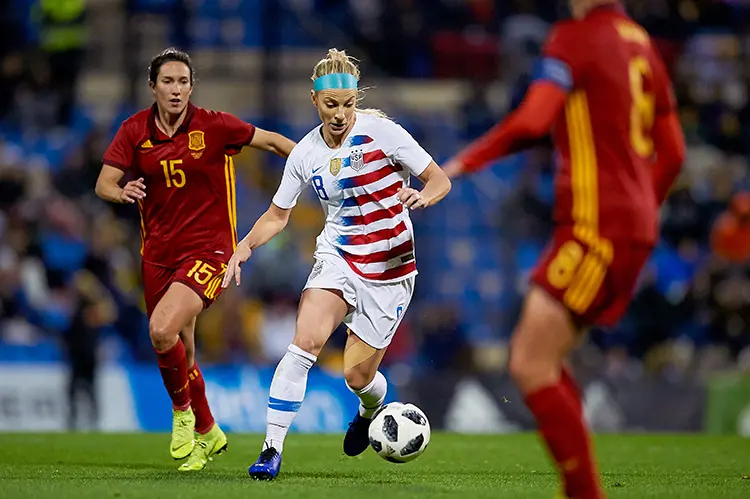
- Give detailed directions! Don’t just yell switch! Actually guide the ball from player to player as it moves across the pitch.
- Do not just shout someone’s name on repeat! YOUR TEAMMATES ALREADY KNOW THEIR NAME. Say their name once or twice to grab their attention, yes, but then accompany it with specifics about what you want them to do.
- Say things like “Through! (when you want it placed through the back line)
- Outside! (when running for an overlap)
- Back! (when you want a 1-2 pass played right back to you for a quick combination)
- Run to where you want the ball! Movement is also a form of communication and helps immensely in addition to talking. Movement is visual and attracts the eye easily, especially in a sea of people standing still .
- Use body language to communicate! Body language is extremely helpful, and again another visual that helps teammates with placement and timing. Point to where you want the ball, stick out the foot you want the ball played into, point your hips in the direction you are moving, etc.
- Use urgency in your voice when necessary! Such as when you want the ball released. Yelling NOW! can help your teammate time the pass for optimal potential and slot the ball at just the right moment to connect with the runner.
- Volume! No one is going to get upset with you for being too loud on the soccer field. I promise.
Paying it forward
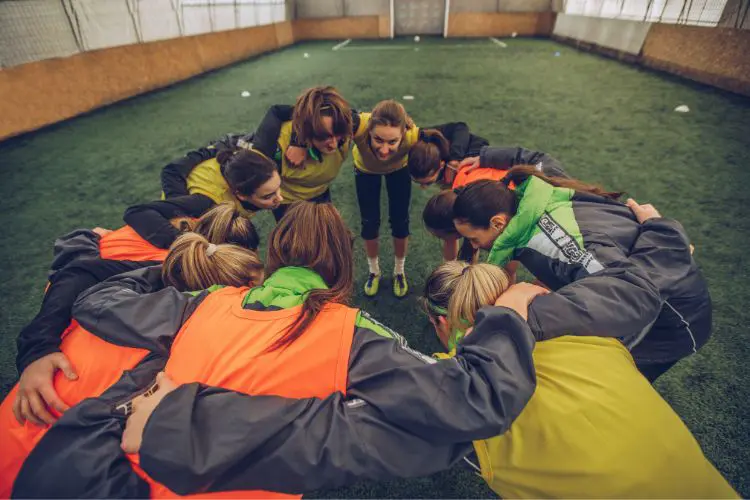
The more players on the soccer pitch that are talking, guiding and being vocally active, the better the team will connect and the better they will play. Your individual communication is a very important piece of that!
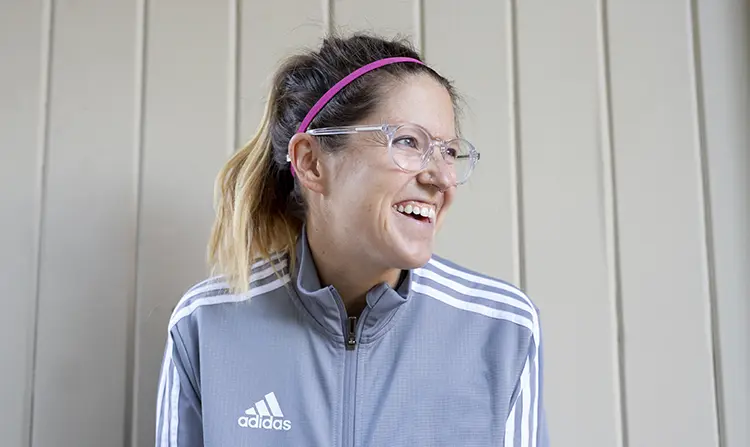
Hi everyone! I’m Jenn and I create content to help female soccer players and coaches maximize individual and team potential by developing healthy mindset skills. Join other subscribers and sign up for the newsletter for all my best tips and advice!
We respect your privacy. Unsubscribe anytime.
